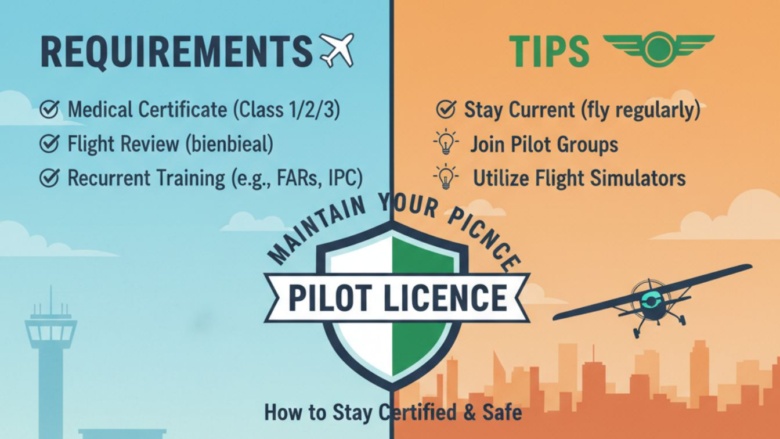Flying high above the clouds comes with its fair share of responsibilities as well as challenges. While safety checks, long flight hours and tight schedules are part of the job, one aspect often overlooked is nutrition.
For pilots and aviation professionals, eating right is not just about staying fit; it’s about staying sharp, alert and healthy in an environment that pushes both body and mind.
Long shifts, erratic timings and frequent travel make balanced eating tough but not impossible. It simply calls for awareness, planning and small but steady changes in daily food choices.
This post looks at practical and sustainable ways pilots and aviation staff can maintain healthy eating habits both on the ground and in the air.
Why Does Nutrition Matter in Aviation?
Pilots are decision-makers in high-pressure situations. From handling turbulence to interpreting technical alerts, their performance directly impacts the safety of hundreds of people. Fatigue, dehydration and poor nutrition can slow down reaction times and affect concentration.
Also, aviation professionals work across time zones, which disrupts the body’s natural rhythm, commonly known as the circadian cycle. Eating the wrong foods or skipping meals can worsen jet lag, cause gastrointestinal discomfort and lead to chronic issues like diabetes or heart conditions. Food is fuel, and for those responsible for aircraft operations, quality fuel matters.
The Common Challenges Pilots Face with Food
- Irregular meal timings: Flight schedules don’t always allow meals at regular hours, leading to hunger pangs or overeating.
- Limited healthy choices: Onboard meals or airport food outlets don’t always serve balanced options.
- Dehydration: With low cabin humidity, water loss is common, yet water intake is often low.
- Overdependence on caffeine: To stay awake and alert, many rely on coffee or energy drinks, which may lead to crashes or sleep issues later.
Pre-Flight Nutrition: Start Right
What a pilot eats before takeoff can influence how they feel mid-air. A balanced meal that includes complex carbohydrates, protein and healthy fats provides lasting energy.
Ideal Pre-Flight Meal Options:
- Grilled paneer or chicken with brown rice and sautéed vegetables
- A vegetable dalia bowl with curd
- Whole grain roti with mixed sabzi and a boiled egg or tofu on the side
- Fruit smoothie with oats, banana, flax seeds and curd
Avoid heavy or spicy meals that can cause bloating or acidity. Meals rich in refined sugar or simple carbs (like white bread or sugary drinks) give a temporary energy spike but cause lethargy later.
Smart Eating on the Go
Since layovers or waiting times at airports often tempt people towards quick snacks or packaged foods, it helps to carry healthy alternatives.
Packable Options:
- Roasted chana or makhana
- Homemade protein bars
- Mixed dry fruits (in moderation)
- Sandwiches made with multigrain bread and fresh fillings
- Cut fruits stored in an insulated container
Avoid foods that can spoil easily or create odour in shared spaces. Always check storage requirements, especially for dairy or meat-based snacks.
In-Flight Nutrition: Stay Light, Stay Alert
While in air, digestion slows down due to changes in cabin pressure. This means heavy meals can leave you feeling drowsy or uncomfortable. Opt for light, nutritious food instead of rich curries, fried snacks or sweets.
Tips for Eating in Flight:
- Eat small portions at regular intervals instead of a single large meal.
- Choose salads, boiled vegetables and grilled proteins when available.
- Limit aerated drinks or alcohol; they can increase dehydration.
- Sip water regularly. Carry your own bottle and refill it after security.
Caffeine and Energy Drinks: Use with Caution
Though caffeine can improve alertness in small doses, excessive consumption disrupts sleep and may lead to jitteriness. Many energy drinks are loaded with sugar and artificial additives. A better alternative is black tea or green tea, which offers antioxidants along with a mild energy boost. If you rely on coffee, limit it to one or two cups per day and avoid it at least four hours before sleep.
Sleep, Meal Timing and the Circadian Rhythm
Crossing time zones plays havoc with hunger signals and sleep schedules. Eating when your body isn’t ready can lead to poor digestion or discomfort.
How to Manage It:
- Try syncing your meals with the destination’s local time.
- Avoid heavy meals close to bedtime.
- If not hungry, have a light snack like a banana or handful of nuts instead of a full meal.
Hydration: The Often-Ignored Lifeline
Most pilots and cabin crew drink less water to avoid frequent restroom visits. However, dehydration can reduce alertness, cause headaches and increase the risk of blood clots on long flights.
Tips for Staying Hydrated:
- Drink at least 2–2.5 litres of water per day.
- Start hydrating before the flight.
- Avoid overconsumption of tea, coffee and alcohol.
- Add electrolytes occasionally, especially during summer or after a long flight.
Post-Flight Recovery: Eat to Heal
After long hauls or back-to-back flights, your body needs rest and nourishment. Choose foods that are light on the stomach but rich in nutrients.
Good Choices Include:
- Khichdi with ghee
- Vegetable soup with multigrain toast
- Steamed idli with sambar
- Curd rice with a side of beetroot or carrot salad
Also, get adequate rest. Good food combined with sleep works better than any supplement.
Ready to Take Control of Your Health in the Skies?
Healthy eating isn’t about perfection; it’s about consistency. Whether you’re a captain, cabin crew or ground staff, your performance relies heavily on how you treat your body.Join hands with INFINIFLY AVIATION, not just for aviation training but for building an all-around lifestyle that keeps you fit to fly. Let’s keep you healthy, alert and sky-ready. Follow us for more insights, tips and training.




